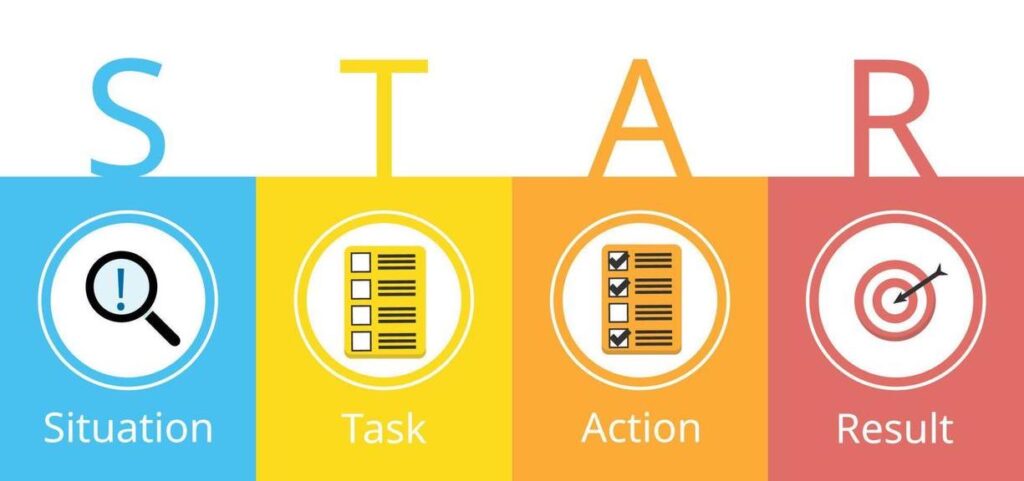Perfect Preparation for Leadership Interviews

Every company has a Leadership round that judges candidates on their quality of leading a team as well as oneself for their personal growth alongside the growth of the organisation.
Few points that must be kept in mind regarding Leadership assessments:
- This is not a one way communication. It is more of a discussion and portraying points and instances from real life
- You may take examples from your current company, previous companies and even in your personal life
- Pick instances of your own life and not make something up
- If something is not relevant to you, you may say about it upfront rather than cooking some story around it
- Honesty is the first thing in any behavioural round interview
- Be open, be communicative.
- Avoid fumbling and using fillers like “umm” and “aah”
Candidates are assessed broadly on 5 leadership qualities:
- Resilience
- Responsiveness
- Empathy
- Collaboration
- Innovation
Topics covered in a Leadership assessment:
- Clear career goals/prospects
- Self-awareness (strengths & opportunities)
- Owning, defining & executing a strategy
- Change Management
- Collaborative behaviour
- Mentoring
- Strategic thinking
- Responsiveness and resilience
- Dealing with tough stake holders
How to prepare for a Leadership/Behavioural Assessment:
- Recall recent situations that show favourable behaviours or actions, especially involving course work, work experience, leadership, teamwork, initiative, planning, and customer service
- Prepare short descriptions of each situation; be ready to give details if asked
- Be sure each story has a beginning, middle, and an end
- Be ready to describe the situation, including the task at hand, your action, and the outcome or result
- Be sure the outcome or result reflects positively on you (even if the result itself was not favourable)
- Be honest. Don’t embellish or omit any part of the story. The interviewer will find out if your story is built on a weak foundation
- Be specific. Don’t generalise about several events; give a detailed accounting of one event
- Vary your examples; don’t take them all from just one area of your life
You need to be a good listener before being a good speaker
Use the STAR method to answer relevant questions:
The STAR method is a structured manner of responding to a behavioural-based interview question by discussing the specific situation, task, action, and result of the situation you are describing.
- Situation: Describe the situation that you were in or the task that you needed to accomplish. You must describe a specific event or situation, not a generalised description of what you have done in the past. Be sure to give enough detail for the interviewer to understand. This situation can be from a previous job, from a volunteer experience, or any relevant event.
- Task: What goal were you working toward?
- Action: Describe the actions you took to address the situation with an appropriate amount of detail and keep the focus on YOU. What specific steps did you take and what was your particular contribution? Be careful that you don’t describe what the team or group did when talking about a project, but what you actually did. Use the word “I,” not “we” when describing actions.
- Result: Describe the outcome of your actions and don’t be shy about taking credit for your behaviour. What happened? How did the event end? What did you accomplish? What did you learn? Make sure your answer contains multiple positive results.
Make sure that you follow all parts of the STAR method. Be as specific as possible at all times, without rambling or including too much information. Sometimes candidates have to be prompted to include their results, so try to include that without being asked. Also, eliminate any examples that do not paint you in a positive light. However, keep in mind that some examples that have a negative result (such as “lost the game”) can highlight your strengths in the face of adversity.

15 Common Leadership Interview Questions:
- Can you tell me about a time when you demonstrated leadership skills?
- How do you monitor the performance of the people that you have to lead?
- Are you able to delegate responsibilities efficiently?
- How would you describe your leadership style?
- What can you do to motivate a team?
- What values are most important to you as a leader?
- Are you able to collaborate with others and accept new ideas?
- How do you handle disagreements with co-workers?
- Who is your favourite leader? Why?
- Are you more comfortable with verbal or written communication?
- How do you respond to criticism?
- Can you tell me about a time when you solved a problem for your employees/employer?
- How do you measure your own performance at work?
- What strengths would you bring to this particular job?
- How well do you know our organisation? What changes would you seek to make if you worked here?
Additional Questions:
- How do you take negative feedback. Tell me about a time when you had to take one
- How do you measure success as a leader?
- How do you manage a conflict situation?
- How do you encourage the development of your peers?
- How do you motivate an under-performing team member?
- How do you respond to ideas/suggestions from team members?
- How do you evaluate the capabilities of a new team member?
- How do you ensure that when you speak, people listen to you and understand you?
- How do you introduce yourself as a team leader?
- How do you determine if a task or project is at risk?
- How would you deliver bad news to your team?
- How did you a handle a time when you had to make an unpopular decision?
- Tell me about a time when you solved a very complex problem that you are proud of
- Tell me about a time when you had to challenge the status quo
- Tell me about a time when you went above and beyond by yourself to achieve something at work
- Tell me about a time you used written communication skills over verbal communication. Why did you do so?
- Tell me about a time when you had to make a very difficult decision.
- Tell me about a situation when your job went through big changes. How did you adjust?
- Tell me about a time you were able to successfully deal with another person even when that individual may not have personally liked you (or vice versa)
- Tell me about a time when you missed an obvious solution to a problem
- Tell me about a time you had to fire a friend
- Given a chance, what would be that one thing you would like to change about the current team you are working with
- What characteristics you believe should be present in every leader and why?
- What is the difference between leading and managing?
- Who are the most important members of your team. Why?
- Describe a time you took a leadership position when you did not have the title of a leader.
- Describe a situation where you weren’t satisfied with your job. What could have made it better?
- Describe your biggest work failure. How did you handle it?
- Describe a situation where you needed information from a coworker who was slow to respond. What did you do?
- Name a time when you had to change a decision due to new facts
- Explain a time when you had to make a decision without all the relevant facts.
- Explain a time when you were not able to meet a deadline?
- Has anything in your personal life impacted your professional life. Why and how?
- Has anything in your professional life impacted your personal life. Why and how?
- You and your manager disagree about a feature launch. How do you go about it?
- You have 2 interns/graduates joining in your team. One is an enthusiast, the other is slow but steady. How would you mentor them?
- What are your thoughts about Mental Health?
Thank you reading this blog. This has been a curated content from multiple sources and real life experience of giving and taking leadership assessments. This blog shall help you clear your thoughts and presumptions about preparing for your next leadership assessment.